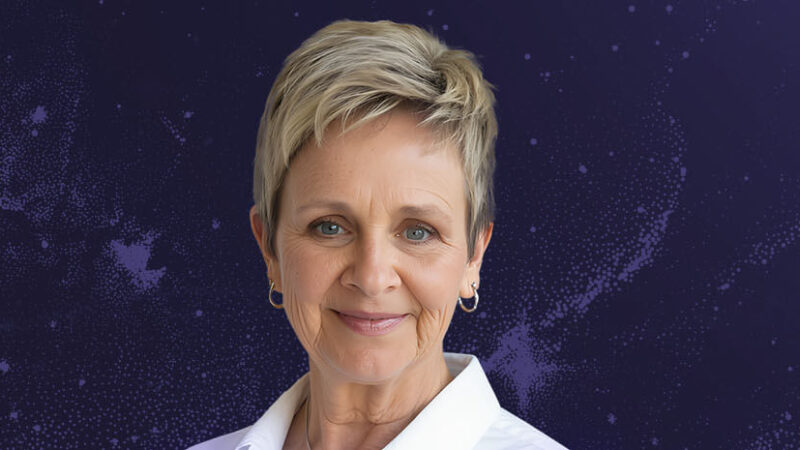
To prepare for the dog days of summer, we move from amusement to audacity. Being a dog owner and lover, I particularly enjoy the expression “dog days.” I always picture a pile of lazy dogs panting away in the shade of a chestnut tree, waiting out the heat of the day to go for an evening walk. Venturing into the heat of creative and spiritual practice takes courage; it is an audacious undertaking.
This July, I invite you to take on a “BHAG”—a Big, Hairy, Audacious Goal. Write forth your truth and wake up to expanded awareness in the process. Whether that means starting a journal or writing a poem, novel, memoir, or letter to your grandmother, audacity will drive you forward. I want you to commit here and now to do your best in any given moment. Move forward with your best intentions of creativity and spiritual awakening at heart. This combined meditation and writing practice will help you get there.
A Meditation on Audacity
Let’s begin with where we are—in a grounded and courageous place, fully embodied. Find your comfortable place to sit. Rest your hands easily in your lap and your feet flat on the ground or cushion. Gently close your eyes. Take a few breaths inward and release. Find that natural rhythm of your breathing, connecting with your breathing body. Tune into your immediate sensory experience, just noticing what your experience is right in this moment. Let your breath be your anchor and ground.
See if you can bring to mind a particularly scary or vulnerable situation. Think of one in which you recently felt exposed, sensitive, even fearful; not one in which you were in a dangerous situation, but a memory of you putting yourself out there in some way—confronting someone, speaking to a group, asking someone new out on a date. As memories of the situation come to you, breathe deeply into your belly and know that you are safe now, breathing here in this moment in this body. If you need to, you can open your eyes, but try to remain grounded in your breathing body. Notice the rush of sensations and allow whatever arises to arise with love, patience, and compassion. Be gentle with yourself and remember that you are safe. See if you can stay with the feelings and simply explore how your fear or discomfort exists as a bodily sensation.
Notice where in your body you feel them. Breathe nurturing air into those places. Allow yourself to become familiar with the sensations of fear and vulnerability without the need to disconnect, distract, or avoid altogether. Be patient and kind with yourself as the emotions and feelings stream through. Gently note any physical changes: increased body heat, increased heart rate, tingling in your arms, increased sweating, and so on. Notice how the sensations linger, change, and dissipate. Become curious and open while kindly grounding yourself in the breath.
Put both hands on your heart, left on top of right, and take a deep breath. Say to yourself, “May I be well, may I be at peace, may I be bathed in the light of lovingkindness and compassion right now.” Take another deep breath, exhale, and release your hands. Bring them back together, palm to palm, at your heart and bow to yourself in gratitude for your courage and love. Open your eyes to complete the meditation.
You might try this meditation for five minutes at first and then extend it as you feel more audacious and courageous. The more you allow the feelings to arise and exist, the more familiar you will become with them. In turn, you will be better able to let them go and dissipate and see them for what they are—waves of energy and information arising and passing away.
Now for the writing . . . Write down three things you can do in the next month that scare you. They don’t have to be drastic acts such as speaking in front of 400 people. How about just sitting down to write that first scene of your novel? Typing up your first few poems? That can be scary enough. And these frightening endeavors don’t have to be related to writing. Maybe it’s a little terrifying to sit in meditation with your eyes closed for more than five minutes. Check in with yourself and see what’s a little scary for you—where can you push yourself a little further? Book a trip overseas, sign up for a rock-climbing adventure, agree to read at your local open mic. Keep in mind that you don’t have to actually do these things right now. Simply start by writing them down and sitting in their presence for a bit. Then you can take action to feel your fear and do it anyway!
This excerpt has been shortened and adapted from Writing as a Path to Awakening: A Year to Becoming an Excellent Writer and Living an Awakened Life.

ALBERT FLYNN DESILVER is an internationally published poet, memoirist, novelist, speaker, and workshop leader. He has published several books of poetry, Beamish Boy, and his newest book, Writing as a Path to Awakening. He teaches at the Omega Institute, Esalen, Spirit Rock, and writing conferences nationally. He lives in Northern California. For more, visit albertflynndesilver.com.

Buy your copy of Writing as a Path to Awakening: A Year to Becoming an Excellent Writer and Living an Awakened Life at your favorite bookseller!
Sounds True | Amazon | Barnes & Noble | Indiebound












